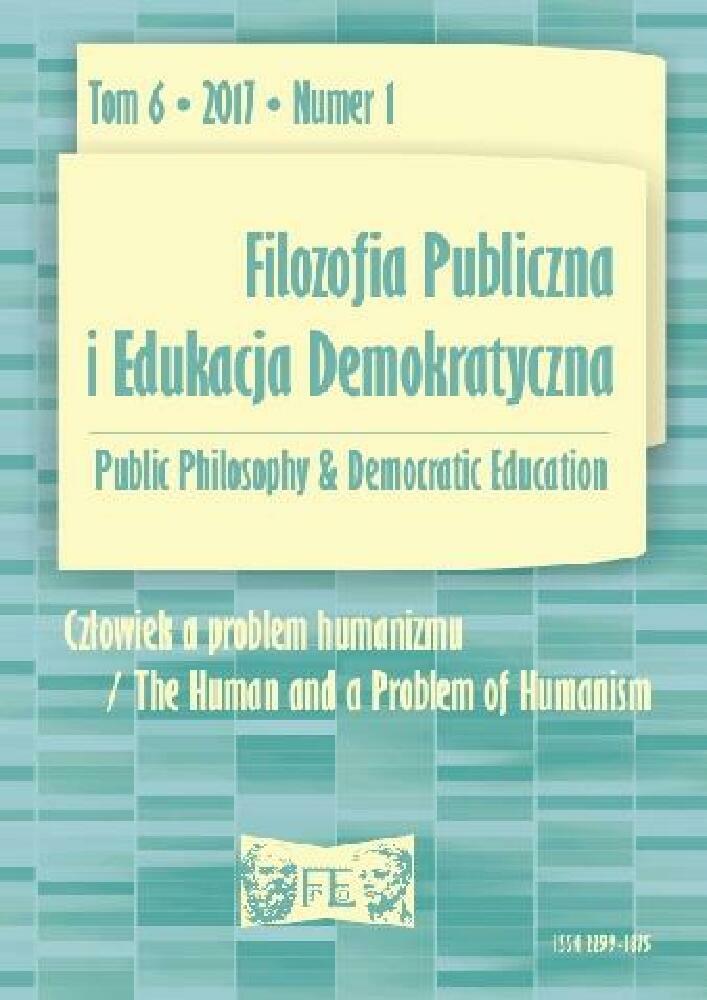Abstrakt
Technological progress and achievements are fundamental to social and economic progress. On the other hand however, they pose a threat to men, who fail to keep abreast of the pace and the results of the changes that take place. Science and education play therefore a crucial role in preventing the most significant problems. Dehumanisation is a real threat to the contemporary man. By means of analysing historical conditions for creating the term ‚Bildung’, in particular in Germany, I draw attention to how this idea could possibly be an alternative to the modern man.Bibliografia
Cohn J., Geist der Erziehung, Berlin 1919.
Dohuzen G., Bildung und Schule. Die Entstehung des deutschen Bildungsbegriffs und die Entwicklung seines Verhältnisses zur Schule, vol. 1, 1964.
Dolak J., Neufassung des Bildung-Begriffs in der Pädagogik der Gegenwart, 1929.
Fischer A., Berufs-Bildung und allgemeine Bildung, Berlin 1911.
Fischer A.,Lexikon der Pädagogik der Gegenwart, vol. I, 1930.
Fischeisen-Köhler M., Bildung und Weltanschauung, Berlin 1921.
Gadamer H. G., Wahrheit und Methode. Grundzüge einer philosophischen Hermeneutik, Berlin 1965 (II wyd.).
Jaspers K., Die geistige Situation der Zeit, Berlin-Lipsk 1931.
Jaspers K., Die Atombombe und die Zukunft des Menschen, München 1962.
Nohl H., Charakter und Schicksal. Eine pädagogische Menschenkunde. Ausg. 3, 1945.
Piotrowska E., Filozoficzne podstawy formalizmu matematycznego. Studium nad poglądami Davida Hilberta, Poznań 1990.
Piotrowska E., Nauka a ideologia. Matematyka i matematycy w III Rzeszy, Poznań 2012.
Ritter J. von (hrsg.), Historisches Wörterbuch der Philosophie, vol. 1, 2, Basel-Stuttgart, 1971.
Roth H., Pädagogische Anthropologie, vol. I, Bidsamkeit und Bestimmung, 1966.
Schelsky H., Einsamkeit und Freiheit. Idee und Gestalt der deutschenUniversität und ihrer Reformen, 1963.
Spranger E., Wilhelm von Humboldt und die Humanitätsidee, Berlin 1909.
Spranger E., Grundlegende Bildung. Berufs-Bildung, AllgemeineBildung, „Kultur und Erziehung”, Berlin 1923.
Spranger E., Die Bedeutung der wissenschaftlichen Pädagogik fürdas Volksleben, „Kultur und Erziehung”, Berlin 1923 (II wyd.).
Klafki W., Studium zur Bildung – Theorie und Didaktik, Berlin 1963.
Lucacs G., Goethe und seine Zeit, Berlin 1950.
Menze C., Wilhelm von Humboldts Lehre und Bild vom Menschen, Ratingen bei Düsseldorf 1965.
Nietzsche F., Gedanken über die Zukunft unserer Bildungsanstalten, 1872.
Walewski S. von, Langenscheidts Taschenwörterbuch, Polnisch-Deutsch. Deutsch-Polnisch, München 1999.
Willmann O., Didaktik als Bildung-Lehre, 1882-1889.
Licencja
Prawa autorskie (c) Autorzy zachowują prawa autorskie i prawa do publikacji swoich artykułów w tym czasopiśmie, przyznając czasopismu prawo do ich rozpowszechniania na warunkach CC BY-NC-ND 4.0
